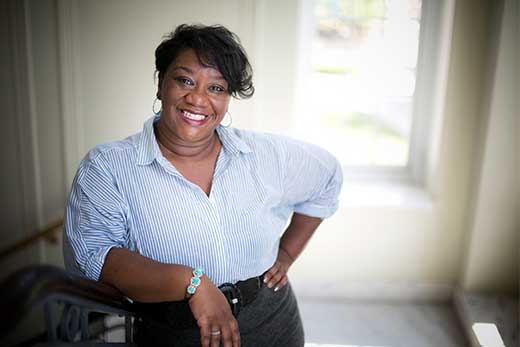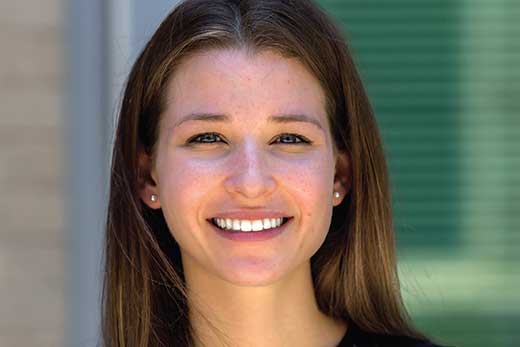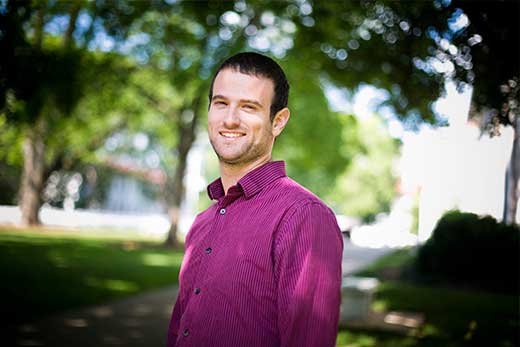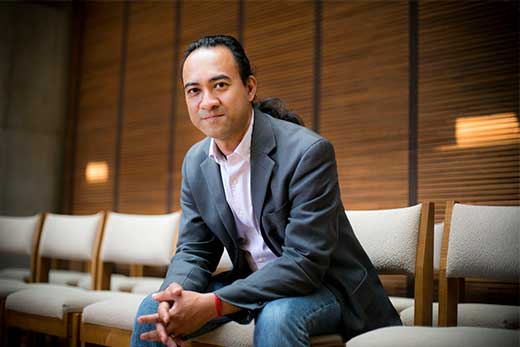Doctoral education at Emory, a top national research university, focuses on the creation and transmission of knowledge for the next generation of intellectual leaders. Emory encourages scholarship about solutions to pressing and complex public issues — scholarship that takes risks, challenges conventions and crosses the boundaries of academic disciplines to reach outside the university and make a difference in the world.
Here are a few examples of the dissertations of this year's PhD recipients from the Laney Graduate School.
Samantha Allen, women's, gender and sexuality studies

Dissertation: "Feeling Fetishes: Toward an Affective Theory of Sexuality"
Adviser: Elizabeth Wilson, professor of women's, gender and sexuality studies
Research: From the early days of sexology to the work of Sigmund Freud, researchers have understood sexuality as being the product of a drive or sexual instinct. Unusual forms of sexuality, like sexual fetishism, have traditionally been seen as pathological deviations of that drive. But if we follow psychologist Silvan Tomkins in thinking of sexuality as being primarily affective (or emotional), then atypical forms of sexuality are neither pathological nor unusual — just different.
Impact: In my field of queer theory, scholars too often think of sexuality as either a pernicious historical construct or a straightforward biological force. An affective (or emotional) theory of sexuality has the potential to solve this debate because it can still see sexuality as being biological without stigmatizing atypical forms of sexuality like sexual fetishism or homosexuality. Part of my dissertation research was completed in Indiana as the 2013 John Money Fellow at the Kinsey Institute for Research in Sex, Gender and Reproduction.
After graduation: Staff writer for the Daily Beast
Tressie McMillan Cottom, sociology

Dissertation: "Becoming Real Colleges in the Financialized Era of U.S. Higher Education: The Expansion and Legitimation of For-Profit Colleges"
Adviser: Richard Rubinson, professor of sociology
Research: My research asks if for-profit colleges like the University of Phoenix are legitimate and how they gain critical financial, legal and public support. I not only aim to explain how for-profit colleges expanded so rapidly but what their growth means for the social mobility of the over two million students enrolled in them.
Impact: My research has been featured in several academic journals, academic books and over 40 public press articles. I am frequently invited to consult with higher education policymakers, think tanks and student activist organizations that are trying to understand the scope of for-profit higher education and inequality. The goal is to produce quality research that bridges academic, political and private sector silos. I am especially proud to support the Corinthian 100, a group of former for-profit college students fighting for student loan reform. My hope is that my work shifts the conversation about for-profit colleges from one about villains and victims to one about the possibilities of an educational system that works for everyone. The book is under contract and this fall I'll be a keynote speaker in South Africa to think about what for-profit higher education looks like internationally.
After graduation: Assistant professor of sociology at Virginia Commonwealth University
Jessilyn Dunn, biomedical engineering

Dissertation: "Genome-scale DNA Methylation Changes in Endothelial Cells by Disturbed Flow and its Role in Atherosclerosis"
Adviser: Hanjoong Jo, John and Jan Portman Professor of Biomedical Engineering, Emory University and Georgia Tech
Research: As a student in the Wallace H. Coulter Department of Biomedical Engineering at Georgia Tech and Emory, I studied how blood flow affects the development of cardiovascular disease. More specifically, I studied the cells that line the inside of blood vessels (endothelial cells) and how mechanical forces caused by blood flow change access to DNA, causing disease-specific gene expression and leading to blockage of blood vessels which causes heart attacks and strokes.
Impact: I published my major findings in the Journal of Clinical Investigation in 2014. I discovered a novel epigenetic mechanism that controls disease-related gene expression that may ultimately control atherosclerosis, heart attacks and strokes. My research may provide a new therapeutic target for cardiovascular disease.
After graduation: Postdoctoral fellowship at Stanford University
Jonathan Drucker, psychology

Dissertation: "Neural Bases of Core and Conceptual Self: Implications for the Representation of Other Persons and Groups of People"
Adviser: Lawrence Barsalou, Samuel Candler Dobbs Professor of Psychology
Research: Selfhood — the experience of being a person — is grounded in the feeling of having a body and being able to use it to interact with our environment. We extend this sense of embodiment to other people in order to understand their personhood.
Impact: Using functional magnetic resonance imaging (fMRI), brain systems involved in a) representing our bodies and b) preparing to make intentional actions were implicated in the much more abstract task of thinking about people. This helps advance the idea that complex cognitive processes are embodied in evolutionarily older neural systems for perception and action.
After graduation: Post-doctoral appointment at the Atlanta VA Medical Center
Orion Paul Keifer Jr., neuroscience

Dissertation: "The Development and Application of Ex Vivo Magnetic Resonance Imaging Techniques to Understand the Neural Basis of Pavlovian Fear Conditioning and Extinction"
Adviser: Kerry Ressler, professor of psychiatry and behavioral sciences
Research: How the human brain changes with learning is a fundamental question in neuroscience. It is often studied in humans through indirect means like magnetic resonance imaging, which can provide indirect clues about the structure and function of the brain. However, what these changes in MRI signals mean on a cellular level is unclear. My work focused on studying mice using MRI and then analyzing the cellular makeup of the brains with microscopy to understand what the MRI signals may mean.
Impact: Essentially it is providing clues on what MRI changes really mean on a cellular level, which may allow for a better understanding of human brain function and dysfunction.
After graduation: Finishing medical school as a student in the Emory MD/PhD program
Brendan Ozawa-de Silva, religion

Dissertation: "Becoming the Wish-Fulfilling Tree: Compassion and the Transformation of Ethical Subjectivity in the Lojong Tradition of Tibetan Buddhism"
Adviser: John Dunne, associate professor of religion
Research: This dissertation explores the possibility of viewing ourselves as beings who have "compassion at the core" in order to make a contribution to the emerging fields of contemplative science, positive psychology and the interdisciplinary "science of compassion."
It does so by drawing from Tibetan and Sanskrit texts from the Buddhist Lojong (blo sbyong) tradition, as well as contemporary research in psychology, neuroscience, phenomenology and anthropology that focuses on compassion, emotions, empathy, embodiment and meaning in life. Much of this research involves a reorientation away from an individualistic account of selfhood toward a recognition of the deeply social and moral nature of experience itself and the implications this has for our understanding of human nature, compassion and ethics.
Impact: Three years ago I was invited to give a talk at Life University on my dissertation research and was offered a job within six months to develop programs there based on compassion training and research. We have since launched the first Masters in Positive Psychology program to have a track in contemplative science and secular ethics; and have also launched the Center for Compassion, Integrity and Secular Ethics at Life University, which will promote research into compassion and pro-social emotions in conjunction with community programming. The flagship project is creating a university degree program for prisoners in Georgia.
After graduation: associate professor of psychology at Life University
